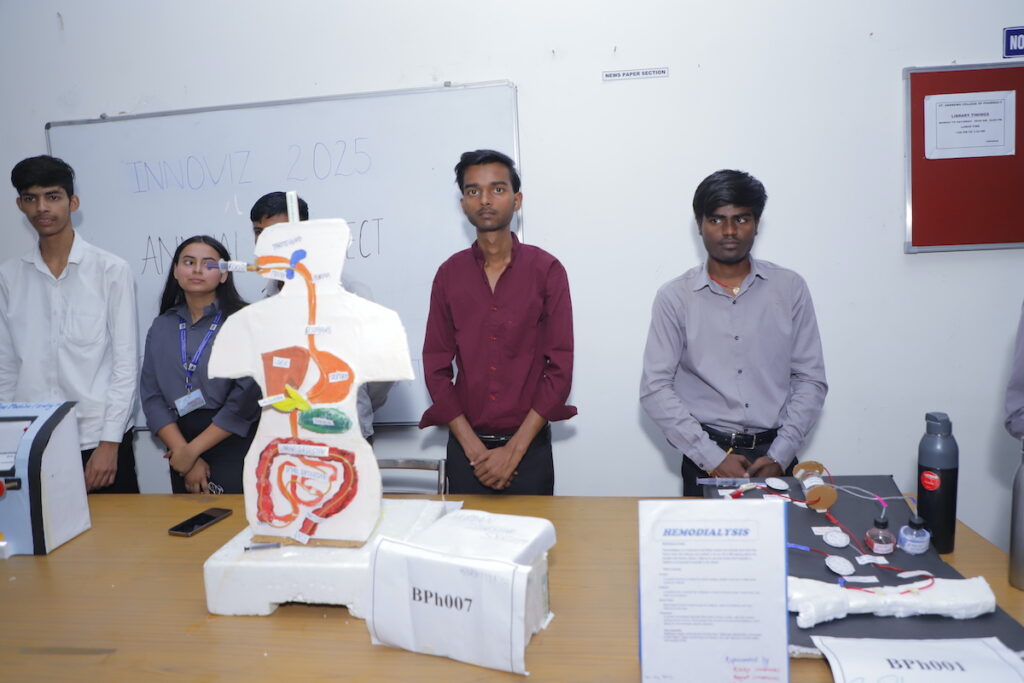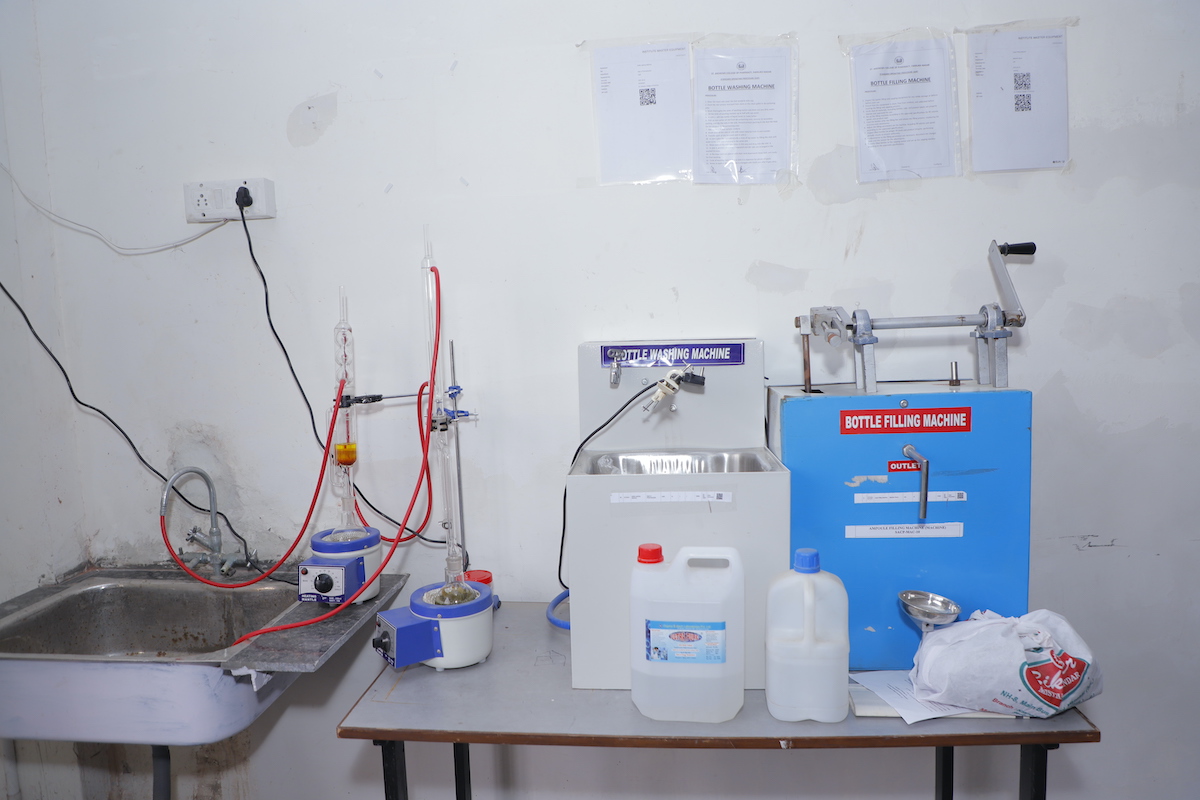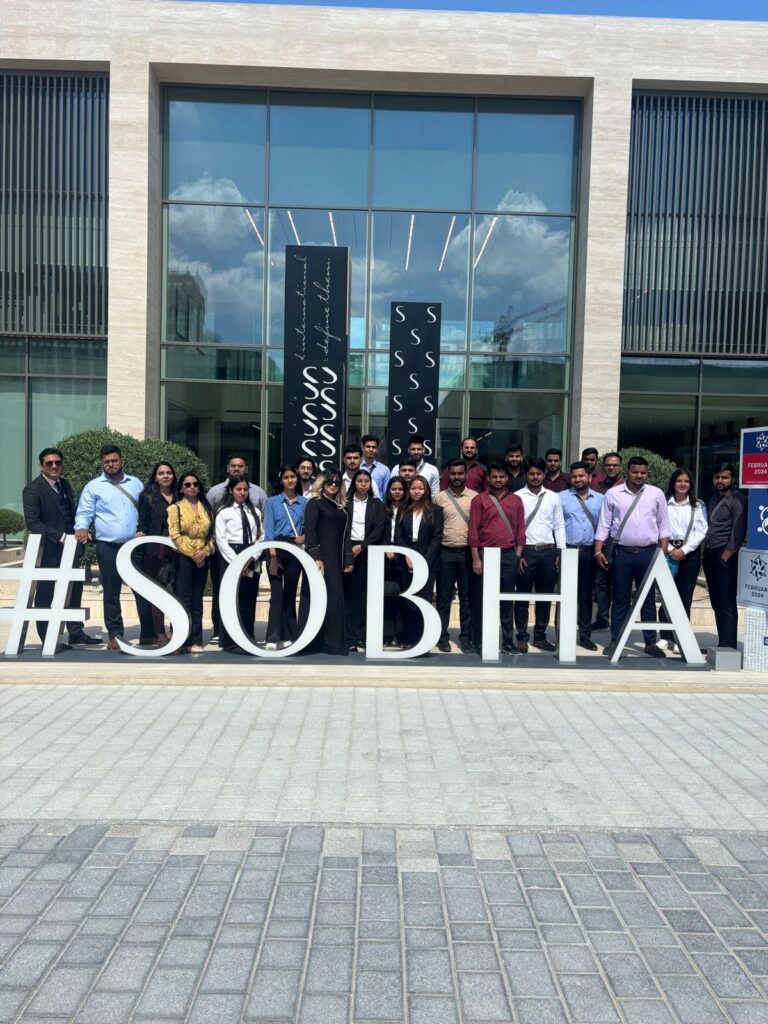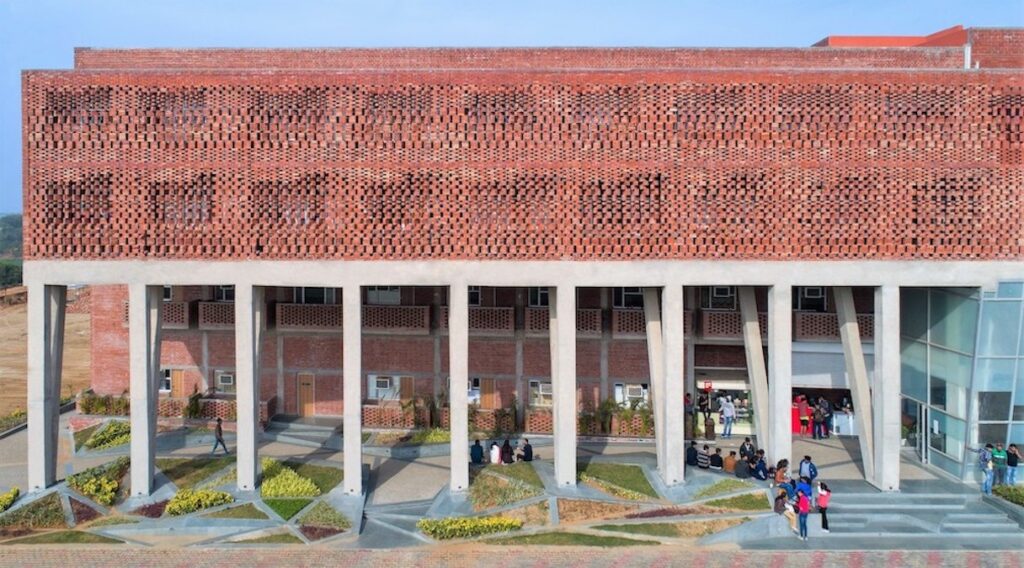D Pharma Full Form
D Pharma Full Form, which stands for Diploma in Pharmacy, is a two-year program offering foundational education and training in pharmacy. This course is ideal for students aiming to build a career in the pharmaceutical industry or healthcare as pharmacists. It provides essential knowledge in key areas like pharmacology, pharmaceutical chemistry, and drug store management, serving as a solid entry-level qualification in the field.
The curriculum is structured to cover both theoretical and practical aspects of pharmacy, ensuring that students gain a solid understanding of drug formulation, drug action, and patient care. The course also includes training in the ethical and legal aspects of pharmacy practice, preparing graduates to handle responsibilities in community pharmacies, hospitals, and other healthcare settings.
Upon completion of the D Pharma program, graduates are eligible to register as pharmacists and can work in various capacities, including drug distribution, retail pharmacy, and pharmaceutical sales.
The diploma serves as a stepping stone for further studies, such as Bachelor of Pharmacy (B. Pharm), allowing students to advance their careers in this growing field. D Pharma Full Form, which stands for Diploma in Pharmacy, is a crucial qualification for those looking to enter the pharmacy profession with a strong foundation in pharmaceutical sciences and pharmaceutical chemistry.
Some of the most opted courses in India and St. Andrews college or different Engineering college or Management colleges are as follows:-
- Btech
- Btech CSE
- Btech ETCE
- MTech
- BCA
- BBA
- MBA
- MCA
- DPharma – St. Andrews College of Pharmacy
- BPharma – St. Andrews College of Pharmacy
- BArch – St. Andrews College of Architecture
Diploma in Pharmacy Course Details

The Diploma in Pharmacy (D.Pharm) is a two-year program aimed at equipping students with fundamental knowledge and skills in the field of pharmacy. D Pharma Full Form, representing Diploma in Pharmacy, is ideal for individuals who aspire to work in the pharmaceutical or healthcare sector as pharmacists or in related roles.
Below are the key details of the D.Pharm course:
Course Duration
Total Duration: 2 years
Divided into: 4 semesters
Eligibility Criteria
Educational Qualification: Candidates must have completed their 10+2 (or equivalent) examination with Physics, Chemistry, and Biology/Mathematics as compulsory subjects.
Minimum Marks: Generally, a minimum of 50% aggregate marks in the qualifying examination is required (may vary by institution).
Course Curriculum
The D.Pharm curriculum is designed to provide both theoretical and practical knowledge in various aspects of pharmacy, including:
Pharmaceutics: Study of drug formulation, dispensing, and compounding.
Pharmaceutical Chemistry: Understanding the chemical properties of drugs and their synthesis.
Pharmacology: Study of drug action, effects, and therapeutic uses.
Pharmacognosy: Study of medicinal properties of natural drugs.
Biochemistry and Clinical Pathology: Basics of biochemical principles and their application in pathology.
Hospital and Clinical Pharmacy: Understanding pharmacy practices in clinical and hospital settings.
Health Education and Community Pharmacy: Principles of health education and role of pharmacy in community health.
Practical Training
Students undergo practical training in laboratories, hospitals, and pharmacies to gain hands-on experience.
A compulsory internship of 500 hours (spread over 3 months) in a recognized hospital or pharmacy is usually required.
Examinations and Assessments
The course includes regular internal assessments, practical exams, and final semester-end exams.
Career Opportunities
Graduates of the D.Pharm program can pursue various career paths, including:
Community Pharmacist
Hospital Pharmacist
Pharmaceutical Sales Representative
Drug Inspector
Medical Representative
Further Studies
After completing D.Pharm, students can pursue a Bachelor of Pharmacy (B.Pharm) for further specialization and career advancement.
Admission Process
Admission is typically based on merit, though some institutions may conduct entrance exams.
Application forms are usually available online on the official websites of colleges offering the course.
Top Colleges
Some well-known colleges offering D.Pharm include:
St. Andrews College of Pharmacy (SACP), Gurgaon
Delhi Institute of Pharmaceutical Sciences and Research (DIPSAR)
Eligibility Criteria for Diploma in Pharmacy

The eligibility criteria for admission to the Diploma in Pharmacy (D.Pharm) course are as follows:
Educational Qualification:
Minimum Qualification: Applicants must have successfully completed their 10+2 or equivalent examination from a recognized board.
Required Subjects: The qualifying examination should include Physics, Chemistry, and Biology/Mathematics as compulsory subjects.
Minimum Marks:
General Category: A minimum of 50% aggregate marks in the qualifying examination is typically required. However, this percentage may vary depending on the institution.
Reserved Categories (SC/ST/OBC): Some institutions may offer a relaxation of 5-10% in the minimum marks requirement for candidates belonging to reserved categories.
Age Limit:
Minimum Age: The candidate should be at least 17 years old at the time of admission or by December 31 of the year of admission.
Maximum Age: There is generally no upper age limit for admission to the D.Pharm course, although this may vary by institution.
Other Requirements:
Entrance Exam: Some institutions may require entrance exams for admission, while others grant admission based on merit in the qualifying examination.
Admission Process for Diploma in Pharmacy

The admission process for the Diploma in Pharmacy (D.Pharm) course generally involves several key steps. D Pharma Full Form, which stands for Diploma in Pharmacy, may have slightly varying requirements depending on the institution. 842883
Here’s a detailed overview:
Check Eligibility:
Ensure you meet the eligibility criteria, including the required educational qualifications, subjects, minimum marks, and age limit.
Application Form:
Obtain the Application: Application forms can typically be obtained online from the official website of the respective institutions or through physical forms available at the college.
Fill Out the Form: Complete the application form with accurate personal, educational, and contact details.
Attach Required Documents: Submit required documents, such as mark sheets, certificates, identification proof, and passport-sized photographs.
Entrance Exam (If Applicable):
Some institutions may require candidates to appear for an entrance exam.
Exam Pattern: The entrance exam usually tests the candidate’s knowledge in subjects like Physics, Chemistry, Biology/Mathematics, and sometimes English.
Prepare and Appear: Prepare for and appear in the entrance exam as per the syllabus and guidelines provided by the institution.
Merit List:
Based on Merit: Institutions that do not conduct entrance exams usually prepare a merit list based on the marks obtained in the 10+2 examination.
Result Announcement: After evaluating the applications, the institution will announce a merit list of selected candidates.
Counseling (If Applicable):
Counseling Process: Some institutions or states may conduct a counseling process, where candidates are allotted seats based on their merit and preferences.
Document Verification: During counseling, candidates must undergo document verification to confirm their eligibility.
Seat Allotment:
Allocation: Seats are allocated based on merit, entrance exam performance (if applicable), and availability.
Acceptance of Seat: Candidates need to confirm their seat by paying the admission fee within the stipulated time.
Payment of Fees:
Fee Submission: Once a seat is allocated, candidates must pay the course fees as per the institution’s guidelines.
Receipt: Obtain a receipt of payment, which serves as confirmation of admission.
Commencement of Classes:
Join the Course: After completing the admission formalities, candidates can join the course on the specified date when classes commence.
Important Documents Required:
10th and 12th mark sheets and certificates
Entrance exam scorecard (if applicable)
Transfer certificate (TC)
Character certificate
Caste certificate (if applicable)
Passport-sized photographs
Proof of identity (Aadhar card, passport, etc.)
Diploma in Pharmacy Syllabus and Curriculum

The Diploma in Pharmacy (D.Pharm) syllabus and curriculum are designed to provide students with foundational knowledge in pharmaceutical science. D Pharma Full Form, standing for Diploma in Pharmacy, prepares students for various roles in the healthcare and pharmaceutical sectors. The course is typically divided into two years, with each year comprising theoretical subjects, practical labs, and sometimes project work.
Year 1:
Pharmaceutics-I
- Introduction to Pharmacy
- Metrology
- Packaging of Pharmaceuticals
- Size Separation
- Mixing and Homogenization
- Extraction and Galenicals
Pharmaceutical Chemistry-I
- Introduction to Pharmaceutical Chemistry
- Sources of Impurities in Pharmaceuticals
- Acids, Bases, and Buffers
- Antioxidants
- Gastrointestinal Agents
- Topical Agents
Pharmacognosy
- Introduction to Pharmacognosy
- Classification of Drugs
- Study of Different Families of Plants
- Collection and Preparation of Herbal Drugs
- Detailed Study of the Following Drugs: Senna, Digitalis, Cinnamon, etc.
Biochemistry and Clinical Pathology
- Introduction to Biochemistry
- Carbohydrates
- Proteins and Amino Acids
- Lipids
- Enzymes
- Liver Function Tests
- Renal Function Tests
Human Anatomy and Physiology
- Introduction to Human Anatomy and Physiology
- Muscular System
- Skeletal System
- Digestive System
- Respiratory System
- Cardiovascular System
- Nervous System
Health Education and Community Pharmacy
- Concept of Health
- Nutrition and Health
- First Aid
- Communicable Diseases
- Non-communicable Diseases
- Community Pharmacy Management
Year 2:
Pharmaceutics-II
- Prescription Handling
- Posology
- Incompatibilities
- Dispensing Techniques
- Sterile Formulations
- Surgical Aids
Pharmaceutical Chemistry-II
- Study of Inorganic Pharmaceuticals
- Radiopharmaceuticals
- Identification Tests for Inorganic Pharmaceuticals
- Limit Tests for Iron, Chlorides, Sulphates, and Arsenic
Pharmacology and Toxicology
- Introduction to Pharmacology
- Pharmacodynamics and Pharmacokinetics
- Autonomic Nervous System Drugs
- Cardiovascular Drugs
- Central Nervous System Drugs
- Chemotherapy
- Toxicology
Pharmaceutical Jurisprudence
- Introduction to Pharmaceutical Legislation
- Pharmacy Act, 1948
- Drugs and Cosmetics Act, 1940
- Narcotic Drugs and Psychotropic Substances Act
- Medical Termination of Pregnancy Act
- Consumer Protection Act
Drug Store and Business Management
- Introduction to Business Management
- Inventory Control
- Sales Promotion
- Channels of Distribution
- Banking and Finance
- Retail and Wholesale Business Management
Hospital and Clinical Pharmacy
- Introduction to Hospital Pharmacy
- Hospital Formulary System
- Drug Store Management
- Drug Information Services
- Clinical Pharmacy
- Therapeutic Drug Monitoring
D Pharma Course Fees

The course fees for a Diploma in Pharmacy (D.Pharm) can vary widely depending on factors such as the type of institution (government or private), location, and facilities offered. D Pharma Full Form, which stands for Diploma in Pharmacy, is influenced by these factors when determining the overall cost of the program.
Below is an overview of the typical fee structure:
Government Colleges:
Fee Range: ₹5,000 to ₹50,000 per year
Government institutions generally have lower fees, making them more affordable for students. The fees may include tuition, exam fees, and other miscellaneous charges.
Private Colleges:
Fee Range: ₹50,000 to ₹1,50,000 per year
Private institutions typically charge higher fees. The fees cover tuition, library charges, laboratory fees, and other institutional costs.
Additional Costs:
Books and Supplies: ₹5,000 to ₹15,000 per year
Uniform and Equipment: ₹2,000 to ₹5,000 (one-time expense)
Hostel Fees (if applicable): ₹20,000 to ₹1,00,000 per year, depending on the facilities provided by the institution.
Scholarships and Financial Aid:
Many institutions, especially government colleges, offer scholarships or fee waivers for meritorious or financially disadvantaged students.
Private colleges may also provide scholarships based on academic performance, entrance exam scores, or other criteria.
Scope of Diploma in Pharmacy

The Diploma in Pharmacy (D.Pharm) offers a wide range of career opportunities and serves as a stepping stone for further education in the field of pharmacy.
Here’s a detailed look at the scope after completing D.Pharm:
Career Opportunities:
Pharmacist:
Community Pharmacist: Work in retail pharmacies or drugstores, where you dispense medications, counsel patients on the proper use of drugs, and manage over-the-counter sales.
Hospital Pharmacist: Employed in hospitals to prepare and dispense medications, collaborate with healthcare professionals, and ensure the safe use of medications for patients.
Pharmaceutical Sector:
Production Assistant: Involved in the manufacturing of drugs and pharmaceuticals in production units.
Quality Control Analyst: Responsible for ensuring the quality of drugs by testing and analyzing the products in laboratories.
Medical Representative: Promote and sell pharmaceutical products to doctors, hospitals, and clinics, and keep them informed about new drug developments.
Government Sector:
Drug Inspector: After gaining experience, you can apply for government positions like drug inspector, where you monitor the quality and regulation of pharmaceutical products.
Pharmacist in Government Hospitals: Work as a pharmacist in government-run hospitals and healthcare centers.
Sales and Marketing:
Sales Executive: Work in the marketing and sales departments of pharmaceutical companies, where you promote and sell medications to healthcare providers and institutions.
Research and Development:
Laboratory Technician: Work in research labs, assisting in the development of new drugs and formulations.
Higher Studies:
Bachelor of Pharmacy (B.Pharm):
Direct Admission to B.Pharm: Many students pursue a B.Pharm degree after completing D Pharma, which further enhances their qualifications and career prospects.
Lateral Entry: Some universities offer lateral entry to the second year of B.Pharm for D Pharma course graduates.
Postgraduate Studies:
Master of Pharmacy (M.Pharm): After B.Pharm, you can pursue an M.Pharm for specialization in areas like pharmacology, pharmaceutics, or clinical pharmacy.
MBA in Pharmaceutical Management: Combining pharmacy knowledge with management skills can open doors to leadership roles in the pharmaceutical industry
Entrepreneurship:
Own Pharmacy: After registering as a licensed pharmacist, you can open and run your own pharmacy or chemist shop.
Pharmaceutical Distribution: You can also engage in the wholesale distribution of medicines and healthcare products.
Teaching and Academia:
Teaching Assistant: With experience and further qualifications, you can pursue teaching roles in pharmacy colleges and training institutes.
International Opportunities:
Work Abroad: D Pharma course graduates can seek opportunities in countries with a demand for pharmacists, provided they meet the licensing requirements of those countries.
Emerging Fields:
Clinical Research: With additional training, D Pharma course graduates can enter the field of clinical research, contributing to drug trials and studies.
Pharmacovigilance: This involves monitoring the safety of pharmaceutical products and ensuring they are used correctly by the public.
Job Security and Stability:
The demand for qualified pharmacists is consistently high, making this a stable career choice with good job security, especially in healthcare settings.
Benefits of Pursuing a Diploma in Pharmacy

Pursuing a Diploma in Pharmacy (D Pharma) offers several benefits, especially for those interested in the pharmaceutical and healthcare sectors. D Pharma Full Form, which stands for Diploma in Pharmacy, provides a solid foundation for students aiming to build a successful career in these fields.
Here’s a detailed look at the advantages of enrolling in a D Pharma course:
Quick Entry into the Pharmaceutical Field:
Short Duration: The D Pharma course is typically completed in two years, allowing students to enter the workforce quickly compared to longer courses like a Bachelor’s degree.
Early Career Start: With a shorter academic period, students can start their careers earlier, gaining valuable experience and financial independence sooner.
Wide Range of Career Opportunities:
Diverse Roles: Graduates can pursue various roles such as community pharmacist, hospital pharmacist, medical representative, quality control analyst, and more.
Government and Private Sector Jobs: There are ample job opportunities in both government sectors (e.g., government hospitals, health departments) and private sectors (e.g., retail pharmacies, pharmaceutical companies).
Foundation for Further Studies:
Pathway to Higher Education: D Pharma course serves as a foundation for further studies, such as Bachelor of Pharmacy (B.Pharm) and Master of Pharmacy (M.Pharm), leading to specialized and advanced career options.
Lateral Entry: D Pharma course graduates often have the advantage of lateral entry into the second year of B.Pharm programs, saving time and resources.
Lucrative Earnings Potential:
Competitive Salary: Pharmacists and related professionals typically enjoy competitive salaries, with the potential for higher earnings as they gain experience and qualifications.
Opportunities for Growth: With experience, D Pharma holders can advance to higher positions or even enter management roles in the pharmaceutical industry.
Entrepreneurship Opportunities:
Own Pharmacy: D Pharma course graduates can open their own pharmacy or chemist shop, providing a pathway to entrepreneurship and self-employment.
Flexibility in Business: Running a pharmacy offers the flexibility to work independently and potentially expand into larger ventures like pharmaceutical distribution or a chain of stores.
Contribution to Healthcare:
Direct Patient Care: As pharmacists, D Pharma course graduates play a crucial role in patient care by ensuring the safe and effective use of medications, counseling patients, and promoting health awareness.
Community Impact: Working as a pharmacist allows individuals to make a meaningful impact on public health, especially in underserved or rural areas.
Job Security:
High Demand for Pharmacists: The healthcare industry is always in need of qualified pharmacists, ensuring job security and stability.
Recession-Proof Career: The pharmaceutical sector is less susceptible to economic downturns, making it a stable career choice.
Skill Development:
Practical Knowledge: The D Pharma course curriculum includes extensive practical training, equipping students with hands-on skills in drug formulation, dispensing, and patient interaction.
Communication and Management Skills: Working as a pharmacist helps develop essential communication and managerial skills, useful in both professional and personal contexts.
Flexibility in Work Environment:
Various Work Settings: D Pharma course graduates can work in various environments, including hospitals, retail pharmacies, pharmaceutical companies, research labs, and government agencies.
Work-Life Balance: Pharmacists often have the flexibility to choose between full-time, part-time, or even freelance work, allowing for a balanced work-life schedule.
Global Opportunities:
Work Abroad: With the growing demand for pharmacists globally, D Pharma course graduates can seek opportunities abroad, provided they meet the licensing requirements of the respective countries.
International Certifications: After gaining experience, pursuing international certifications can open doors to higher-paying jobs in countries with advanced healthcare systems.
Top Colleges for D Pharma

Here’s a list of some of the top colleges in India for pursuing a Diploma in Pharmacy course:
St. Andrews College of Pharmacy (SACP), Gurgaon
Recognized for its exceptional pharmaceutical science programs, St. Andrews College of Pharmacy delivers a robust curriculum and offers outstanding placement prospects.
Delhi Institute of Pharmaceutical Sciences and Research (DIPSAR), New Delhi
A distinguished government institution known for its superior education in pharmaceutical science and strong connections within the industry.
Institute of Chemical Technology (ICT), Mumbai
A leading institute specializing in advanced pharmaceutical chemical and pharmaceutical science education, with a strong emphasis on research and innovation.
Poona College of Pharmacy, Pune
Affiliated with Bharati Vidyapeeth, this institution is highly regarded for its pharmacy programs, offering excellent faculty and modern facilities.
L. M. College of Pharmacy, Ahmedabad
One of the oldest pharmacy colleges in India, renowned for its historical significance and commitment to maintaining high academic standards.
JSS College of Pharmacy, Ooty and Mysuru
Part of the JSS Academy of Higher Education & Research, this college provides comprehensive pharmacy programs with a focus on research and development.
Madras Medical College, Chennai
Offers a well-established pharmacy program with extensive clinical exposure and valuable internship opportunities.
Al-Ameen College of Pharmacy, Bangalore
A respected institution providing a D Pharma course with contemporary facilities and a strong focus on industry-relevant education.
Maharashtra Institute of Pharmacy, Pune
Known for its rigorous academic standards and a strong emphasis on practical training in pharmaceutical science & pharmaceutical chemistry.
Career Opportunities after D Pharma

After completing a Diploma in Pharmacy (D Pharma), graduates have a diverse range of career opportunities in the pharmaceutical and healthcare sectors.
Here’s a detailed look at the potential career paths:
Community Pharmacist:
Role: Work in retail pharmacies or drugstores, where responsibilities include dispensing medications, providing patient counseling, and managing over-the-counter sales.
Work Environment: Independent pharmacies, chain drugstores, and supermarkets.
Hospital Pharmacist:
Role: Employed in hospitals to prepare and dispense medications, collaborate with healthcare professionals to ensure safe and effective drug therapy, and manage medication inventory.
Work Environment: Hospitals, clinics, and healthcare facilities.
Pharmaceutical Sales Representative:
Role: Promote and sell pharmaceutical products to doctors, hospitals, and clinics. Provide information about drug benefits and usage to healthcare professionals.
Work Environment: Pharmaceutical companies, medical sales firms.
Quality Control Analyst:
Role: Test and analyze pharmaceutical products to ensure they meet quality standards and regulatory requirements.
Work Environment: Pharmaceutical manufacturing companies, research labs.
Production Assistant:
Role: Assist in the manufacturing process of pharmaceutical products, including the preparation, formulation, and packaging of medications.
Work Environment: Drug manufacturing companies, production units.
Medical Representative:
Role: Act as a liaison between pharmaceutical companies and healthcare providers, providing information and promoting products.
Work Environment: Pharmaceutical companies, medical sales agencies.
Drug Store Manager:
Role: Manage the operations of a drugstore or pharmacy, including inventory management, staff supervision, and customer service.
Work Environment: Retail pharmacies, drugstores.
Clinical Research Coordinator:
Role: Coordinate and manage clinical trials, ensuring compliance with protocols and regulations, and overseeing the administration of investigational drugs.
Work Environment: Research institutions, clinical trial organizations.
Drug Inspector:
Role: Inspect drug manufacturing units and ensure compliance with regulations and quality standards. Handle the enforcement of drug laws and regulations.
Work Environment: Government agencies, regulatory bodies.
Hospital Pharmacy Technician:
Role: Support hospital pharmacists in preparing and dispensing medications, maintaining medication records, and providing medication information.
Work Environment: Hospitals, healthcare facilities.
Pharmaceutical Research and Development:
Role: Assist in research and development activities for new drugs and formulations, contributing to the innovation and improvement of pharmaceutical products.
Work Environment: R&D departments of pharmaceutical companies, research institutions.
Pharmaceutical Marketing:
Role: Develop and execute marketing strategies for pharmaceutical products, including market research, product promotion, and brand management.
Work Environment: Pharmaceutical marketing firms, corporate marketing departments.
FAQs
What does D.Pharm stand for?
D.Pharm stands for Diploma in Pharmacy, a program focused on providing foundational knowledge. D Pharma Full Form, representing Diploma in Pharmacy, emphasizes essential pharmaceutical knowledge for aspiring professionals in the field.
What is the duration of the diploma in pharmacy course?
The diploma in pharmacy course typically lasts for 2 years, providing comprehensive education in pharmacy and practical training.
What are the eligibility criteria for diploma in pharmacy course?
To be eligible for the Diploma in Pharmacy course, candidates must have completed their 10+2 with Science subjects, including Physics, Chemistry, and Biology/Mathematics.
What subjects are covered in the diploma in pharmacy course curriculum?
The curriculum of diploma in pharmacy includes subjects like Pharmaceutics, Pharmaceutical Chemistry, Pharmacology, Pharmacognosy, and Pharmaceutical Science.
Can diploma in pharmacy course graduates pursue higher education?
Yes, D.Pharm graduates can pursue further studies such as Bachelor of Pharmacy (B.Pharm) and Master of Pharmacy (M.Pharm) for advanced career opportunities.
What career options are available after completing diploma in pharmacy course?
Graduates can work as community pharmacists, hospital pharmacists, pharmaceutical sales representatives, quality control analysts, and in various other roles in the pharmaceutical industry.
Is diploma in pharmacy course a recognized qualification?
Yes, diploma in pharmacy is a recognized qualification for entry-level positions in the pharmacy field, accredited by the Pharmacy Council of India (PCI) and other regulatory bodies.
What is the scope of a D Pharmacy course?
D Pharmacy (Diploma in Pharmacy) scope includes working in pharmacies, hospitals, pharmaceutical companies, and pursuing further education or entrepreneurship in the pharmaceutical sector. D Pharma Full Form, standing for Diploma in Pharmacy, opens diverse career opportunities in these areas.
Are there any entrance exams for D.Pharm admission?
Some colleges may require entrance exams or merit-based admissions, while others may offer direct admission based on 10+2 marks.
What is the difference between D.Pharm and B.Pharm?
D Pharm full form diploma in pharmacy is a diploma course providing foundational knowledge, while B.Pharm is a bachelor’s degree offering more advanced and specialized education in pharmacy.




